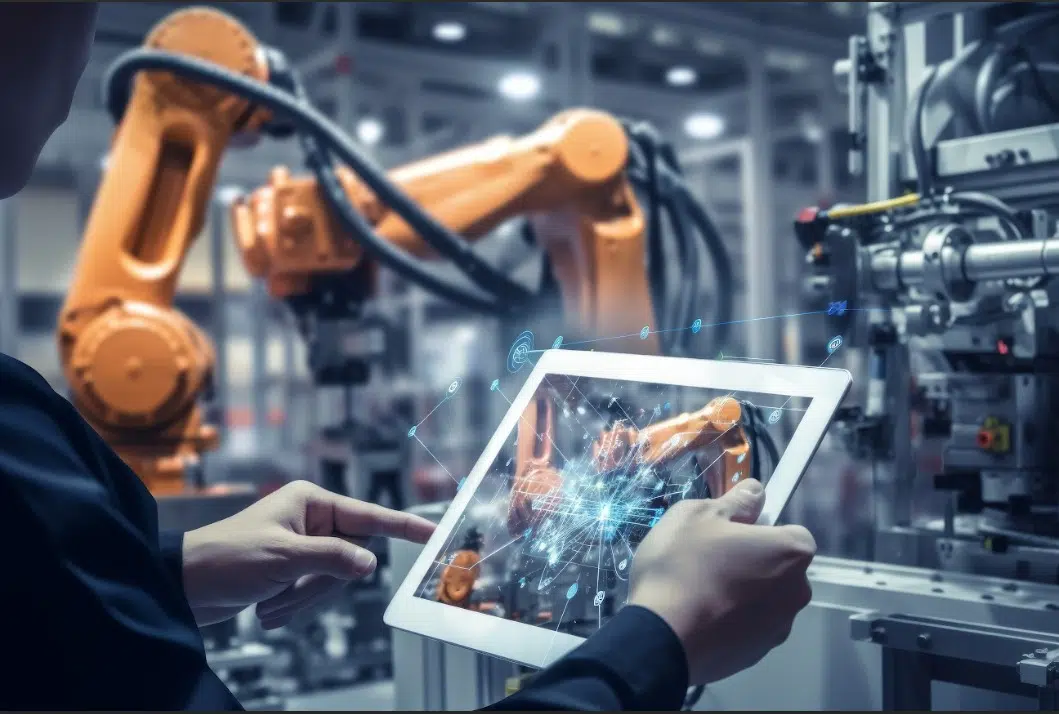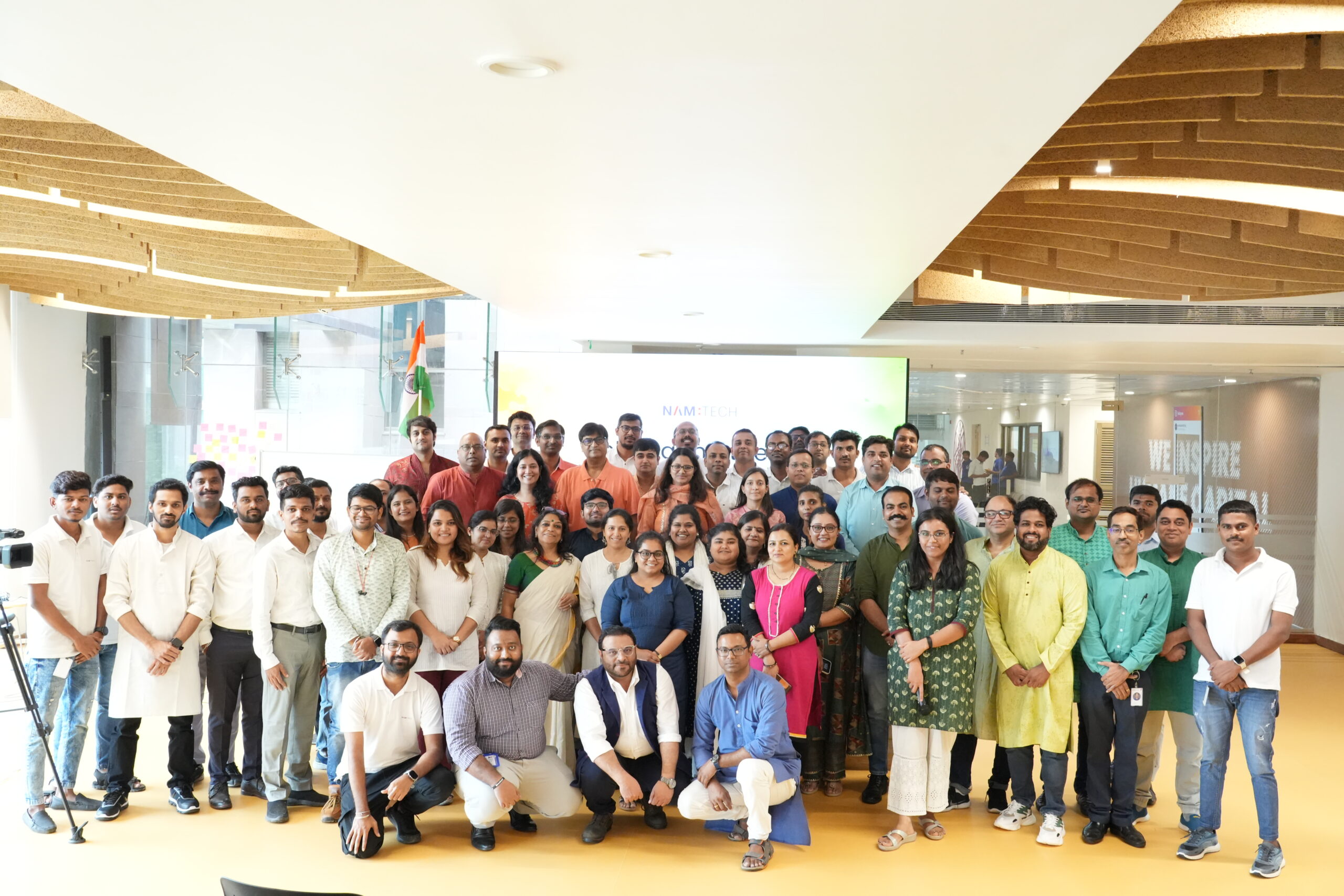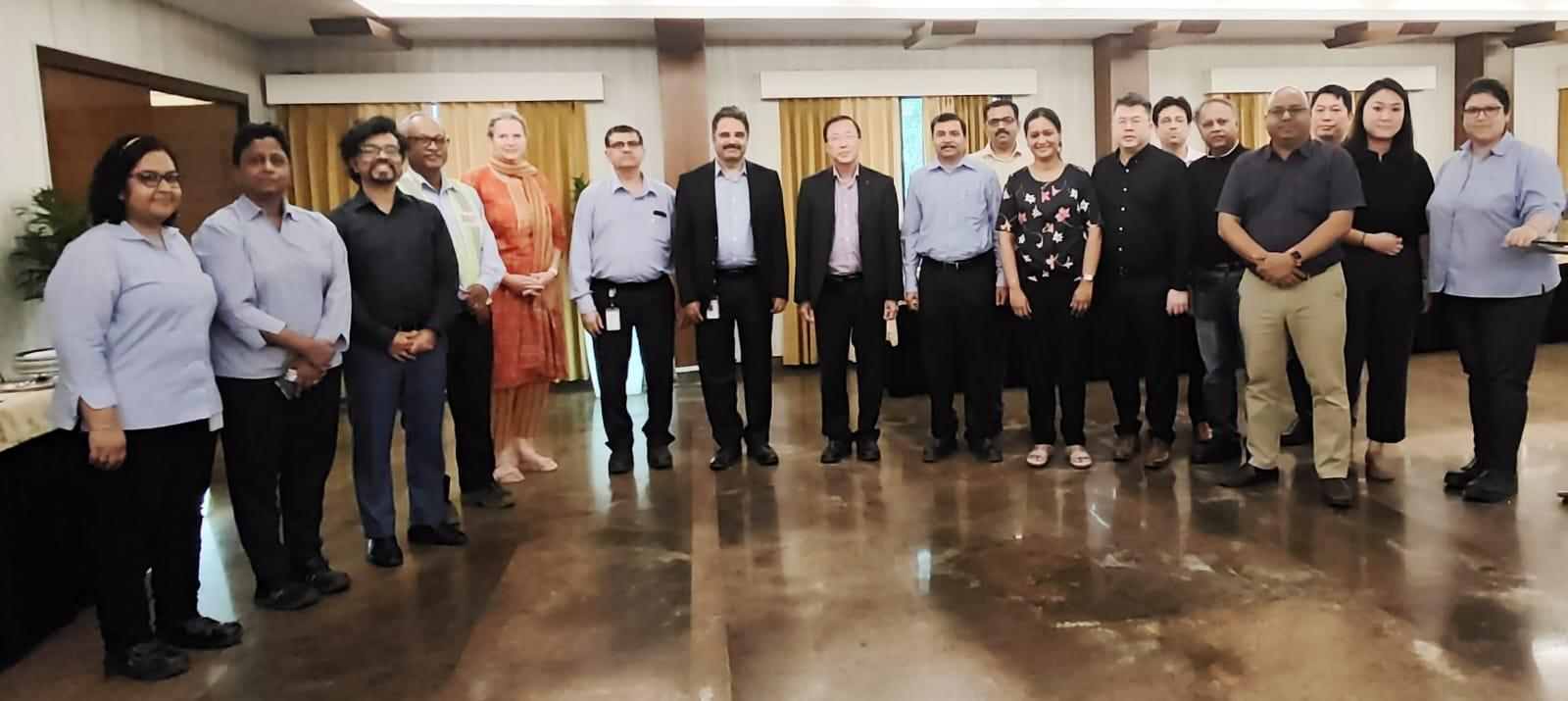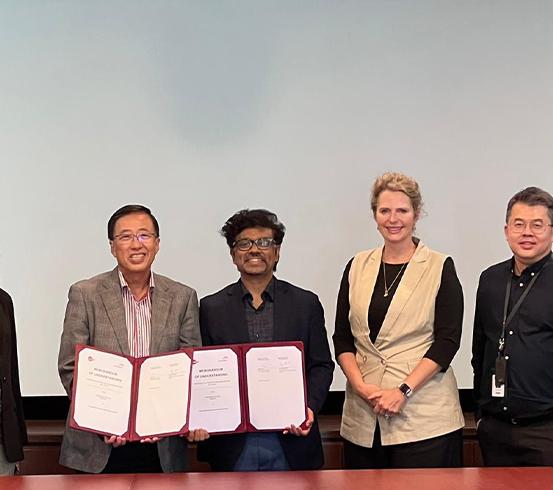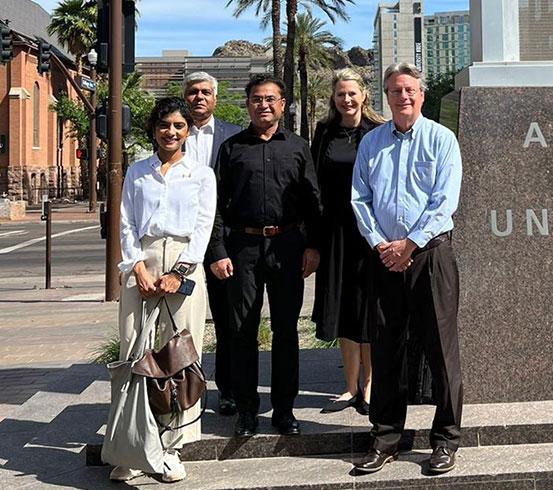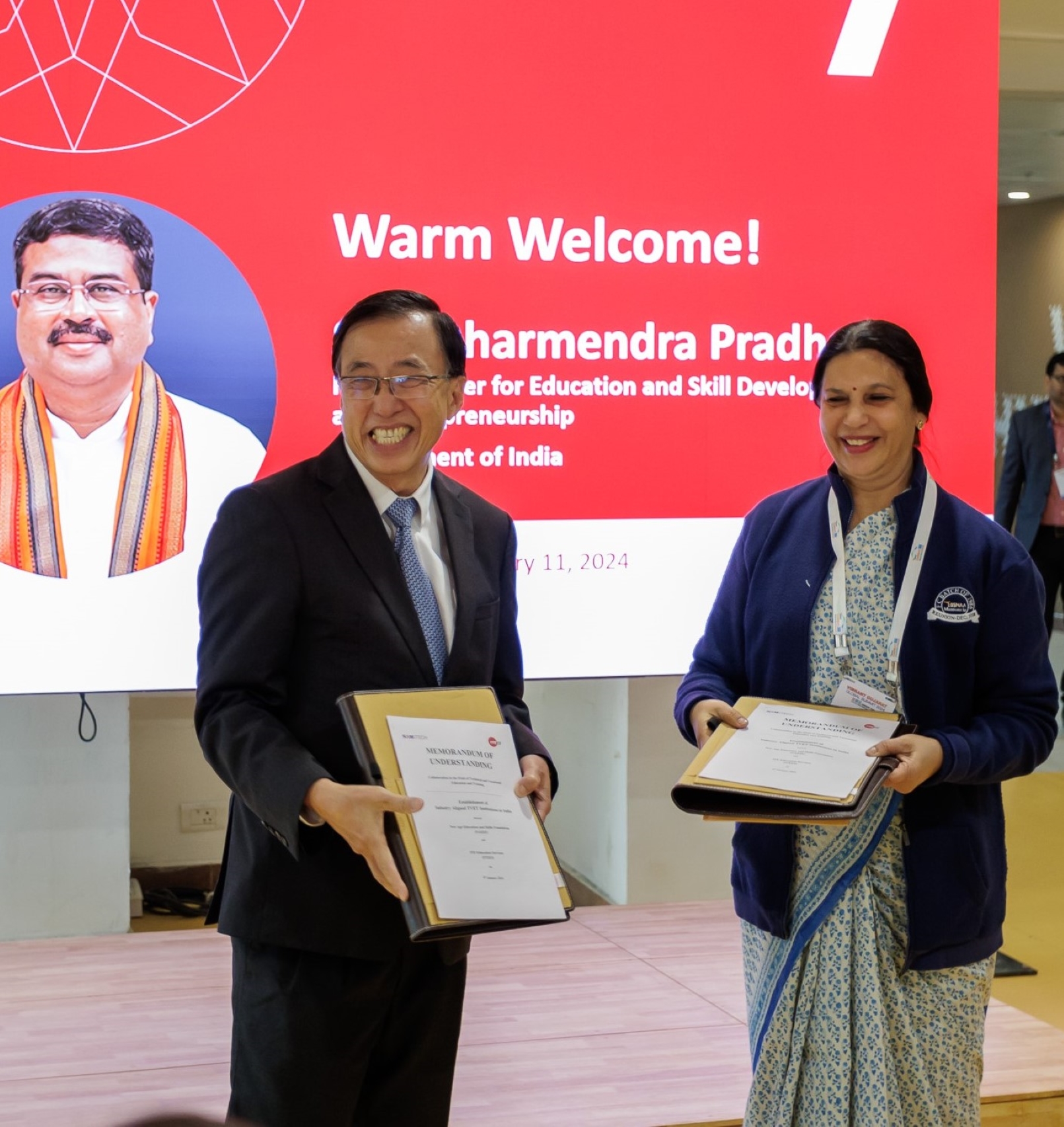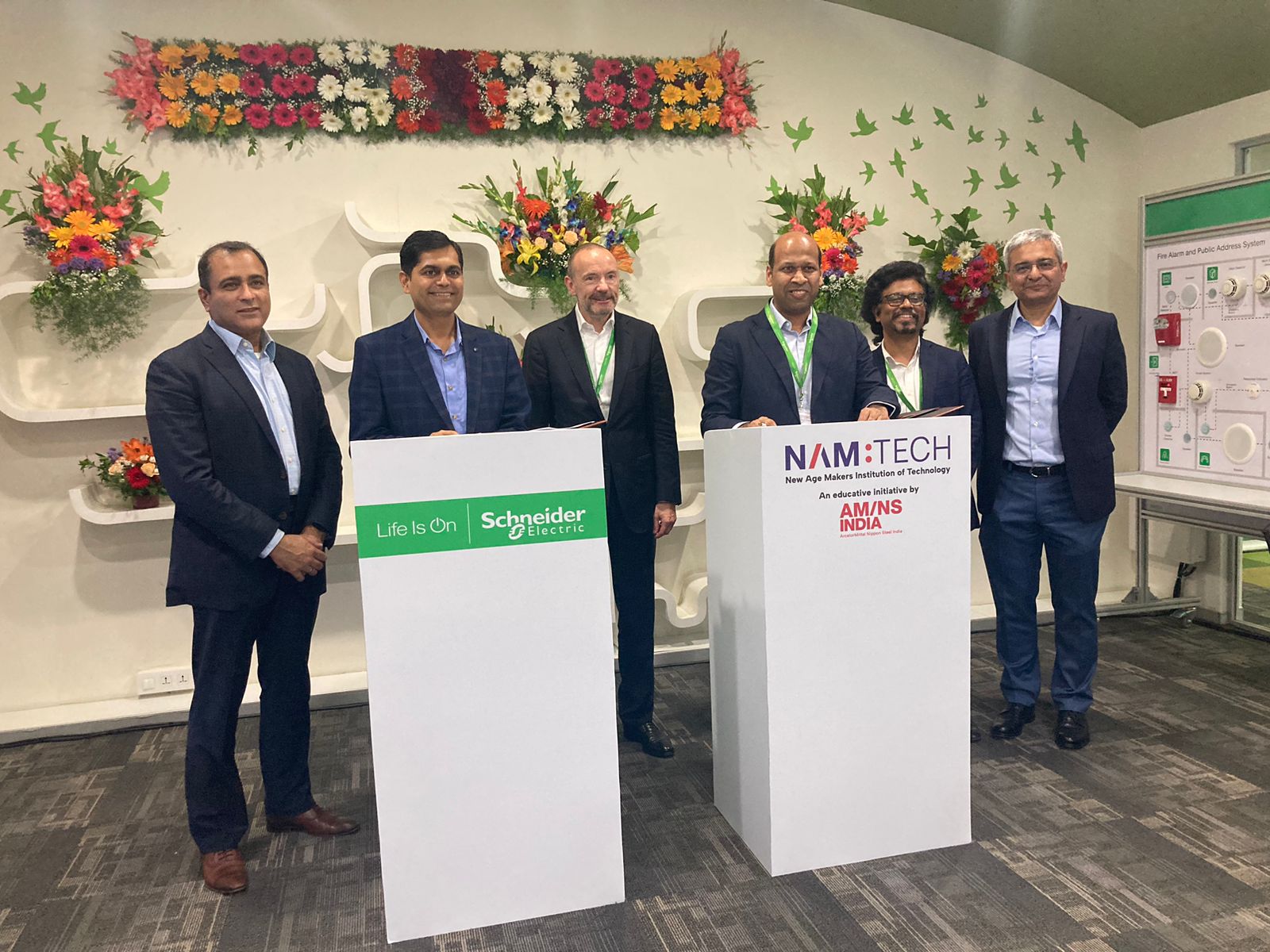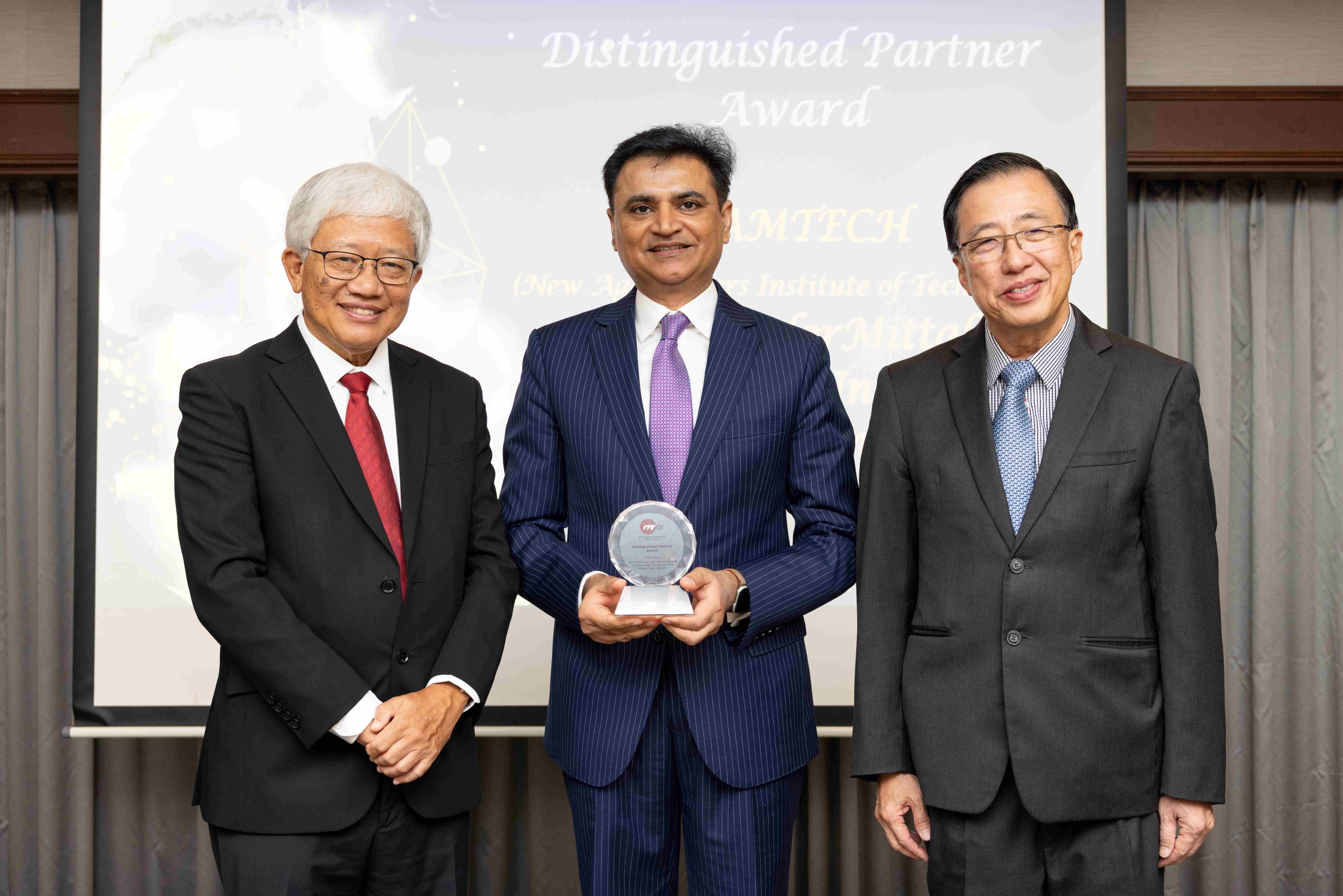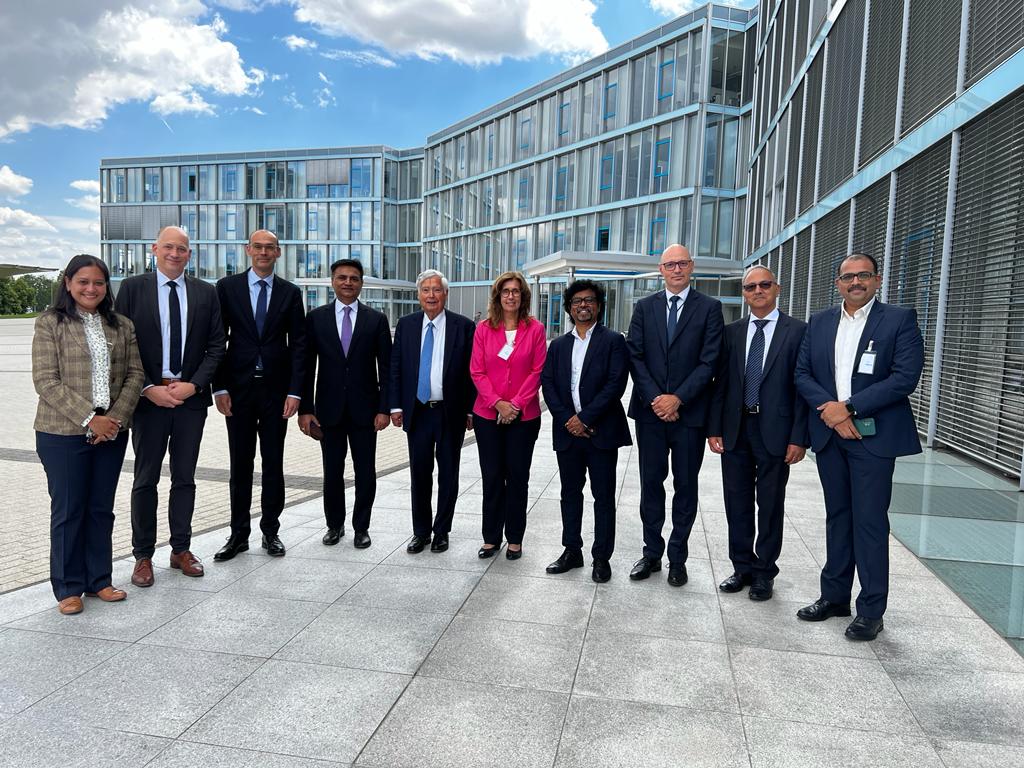“If the 140 crore countrymen take a resolve to make the nation developed, then India will surely become ‘Viksit’ by 2047.” Prime Minister Narendra Modi addressed ‘Vikshit Bharat Sankalp Yatra’ in Varanasi (December 2023).
India envisions becoming a developed economy by 2047 from ‘Vikasshil Bharat’ to ‘Viksit Bharat.’ The manufacturing sector, with a share of 17% of GDP in 2023, is a significant contributor to achieving the dream of becoming a developed economy and shedding the infamous title of ‘third world economy.’ The aim is to make the Indian manufacturing sector around $1 trillion by 2025-26.
The manufacturing sector employs more than 20% of India’s workforce. However, there is a widening skill gap between what the industry wants and what the job market provides in terms of skills required for future factories in Industry 4.0. This skill gap calls for the need to smarten up conventional engineering with smart manufacturing engineering.
The future of smart manufacturing lies with people who are skilled in Gen-AI, Robotics, Cloud Computing, Edge Computing, Intelligent Motion Solutions and other new-age technologies.
Facts on Skills Gap and Future Needs
According to a survey by Ultimate Kronos Group, around 76% of manufacturers believe there is a shortage of skilled workforce that will adversely affect their profit margins in 2023. About 35% of companies labelled the situation as “severe.” Another study stated that around two-thirds of the workforce in India is not skilled and qualified for contemporary job vacancies.
According to the Telecom Sector Skill Council (TSSC) and Draup, an AI-powered app, we require over 22 million skilled workforces for Industry 4.0 and 5-G intensive organisations by 2025.
What’s the solution?
The solution is re-thinking conventional engineering and providing futuristic smart manufacturing programs. Innovative industry-aligned engineering programs are crucial to groom a pool of employees to drive manufacturing in Industry 4.0 to attain vision- Viksit Bharat @2047.
The vision entails the voice of young India in various aspects of development, including social progress, economic growth, environmental sustainability and good governance. According to NITI Aayog, India aims to become an economy worth $30 trillion by 2047 on the occasion of the 100th year of Indian Independence. It also projects exports to be valued at $8.67 trillion by 2047.
Why is Conventional Engineering not Sufficient for Industry 4.0?
- Smart manufacturing programs teach modern approaches for future factories and smarten manufacturing processes. Smart manufacturing tools are IoT, IIoT, Robotics, Automation, Cloud Computing and more.
- You can not find solutions for the tech era with traditional engineering knowledge. Therefore, the industry needs professionals with an in-depth understanding of the technologies of Industry 4.0 to devise new and effective product design and manufacturing methods.
- Traditional manufacturing or conventional engineering needs more efficiency; it is labour-intensive and open to human errors. It is less open to modern technologies, their applications, and analysis.
- Industry 4.0 requires faster technologies, human-machine collaboration, automation to minimise human errors, and data-based decision-making. With conventional engineering, you cannot run future factories.
- With most universities and colleges still imparting traditional engineering programs, there is a widening skill gap in manufacturing and other sectors. India requires smart manufacturing programs to train future-ready manufacturing professionals.
- Conventional engineering focuses primarily on theoretical aspects of learning. Industry 4.0 needs manufacturing professionals with the right theoretical and practical skills to blend. Leading institutions include industrial training, internships and field visits in their curriculum to instil the right amount of hands-on expertise for building engineers for future factories.
How will Smart Manufacturing smarten up Traditional Engineering for Industry 4.0?
Smart manufacturing programs recognise loopholes in conventional engineering courses and prepare curricula to groom professionals who can run the smart manufacturing future in Industry 4.0 and beyond.
Students learn the following skills of smart manufacturing that smarten up conventional manufacturing processes.
Smart manufacturing employs the latest technologies to boost the human workforce and efficiency on the factory floor. Here are skills that are significant in smart manufacturing with core curriculum aspects.
Artificial Intelligence and Gen-AI
- Artificial Intelligence and generative AI include concepts including machine learning concepts, supervised and unsupervised learning, neural networks (convolutional and recurrent) in deep learning,
- AI syllabus also includes natural language processing, computer vision, python, statistics, and reinforcement learning. NLP covers language understanding, chatbot development, text analysis and more. Computer vision includes object detection, image recognition, and video and image analysis. AI specialisation also covers modules on face detection and sentiment analysis.
Robotics and Automation
- Robotics and automation specialisation may include modules on methods to design, execute, and perform prototype tests, about robot operating systems, and effective collaborative processes of team communication and documentation.
- Robotics and automation in smart manufacturing programs provide knowledge about handling industrial methods and machinery. It replaces manual, repetitive tasks and provides efficient automation that boosts efficiency, quality, speed, and performance.
- This specialised engineering degree entails designing, manufacturing, and operating automated systems and robots. This branch of engineering for Industry 4.0 includes aspects of electrical, electronics, computer science, machine learning, artificial intelligence, mechatronics, instrumentation and control.
- The robotics and automation syllabus for smart manufacturing programs includes linear algebra, engineering chemistry, differential equations, numerical methods, programming languages and more.
Cloud Computing
- Evolution, pros, cons, and challenges of cloud computing in evolving tech era in Industry 4.0 and beyond
- Cloud security, prominent cloud stacks with their use cases
- SLAs, service and deployment models, enabling technologies and economic models
- Cloud security, database management, visualisation, model services and cloud computing models, including basic concepts of cloud computing, cloud storage management, building cloud security and networks
- Database skills, DevOps, cloud deployment and migration across several platforms, cloud security, machine learning and AI are among the most sought-after cloud skills for future factories in Industry 4.0.
Conclusion
These are some of the top technologies you study with smart manufacturing programs. Education Institutions can smarten up traditional engineering courses by integrating AI, Cloud Computing, Robotics and Automation, and other new-age technologies and groom future-ready engineering professionals.
